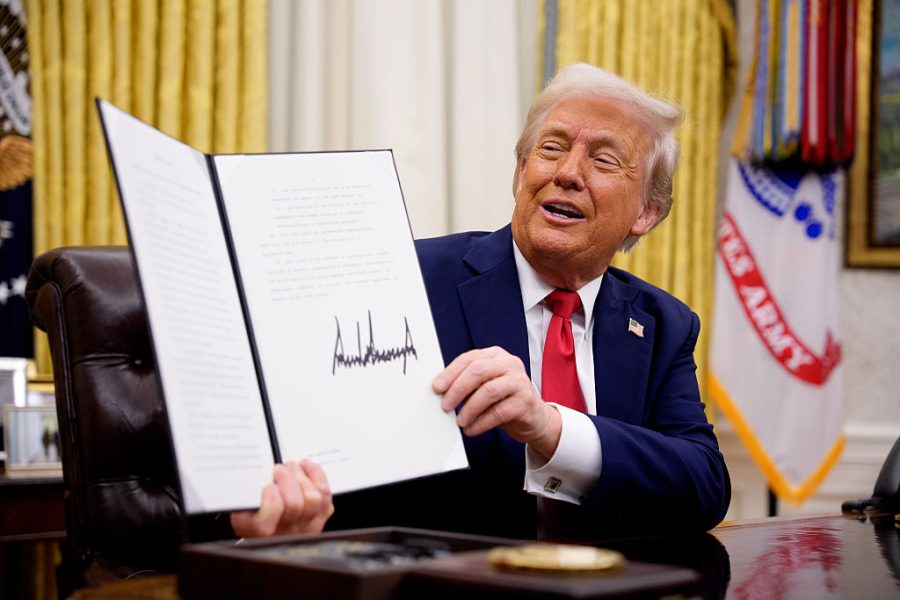In just a few hours, Donald Trump is set to take his tariff war global. At 9 p.m. UK time (4 p.m. in Washington), the American President will unveil a sweeping set of trade tariffs, on what he’s dubbed ‘Liberation Day’. What exactly Trump plans to announce remains unclear, but reports suggest everything from global reciprocal tariffs to the enforcement of the 25 per cent duties originally aimed at Mexico and Canada could be on the table.
As Katy Balls noted in today’s Lunchtime Espresso, any hopes in Whitehall of securing a UK exemption have all but evaporated. The focus has now shifted from lobbying to damage control, as the economic fallout begins to bite. Ministers are quietly hoping that a trade deal lite could be brokered later – perhaps in exchange for softening measures like the digital services tax that annoy folk in Silicon Valley.
Keir Starmer appears to be resisting the temptation to strike back
But the damage has already begun. New figures from the Institute for Public Policy Research show that 25,000 UK car manufacturing jobs are now at risk, with one in eight British-made cars destined for the US. Across the Channel, Deutsche Bank has warned that a 20 per cent blanket tariff could shave 0.6 percentage points off EU GDP. Meanwhile, back home, the Office for Budget Responsibility said last week that global tariffs could wipe out the entire £9.9 billion headroom Chancellor Rachel Reeves had carved out against her fiscal rules.
Markets have noticed too, with the FTSE 100 closing down 0.4 per cent today. There are, however, some early winners. US car sales jumped 10 per cent in March – the highest level in four years – as Americans rushed to buy new vehicles before prices spike. Gold continues its climb. And US Treasury yields have dipped, lowering borrowing costs – though this is less a sign of confidence and more a response to increased bets that the Federal Reserve will be forced to cut rates as a possible recession looms.
Back across the Atlantic, the EU is gearing up for retaliation, promising a ‘robust and calibrated’ response. Keir Starmer, by contrast, appears so far to be resisting the temptation to strike back – wisely so. The OBR’s Spring Statement forecast laid out the risks in black and white: retaliatory tariffs would knock an extra 1 per cent off GDP in each of the next two years compared to a scenario where Britain and its allies hold fire.
If Starmer can keep a cool head – and persuade others to do the same – it may just cushion the blow.







Comments